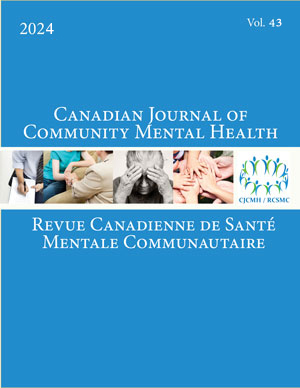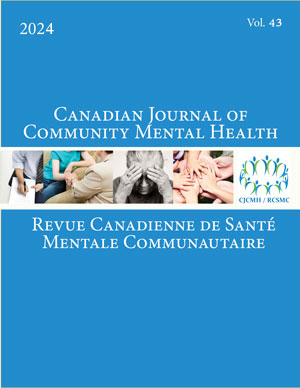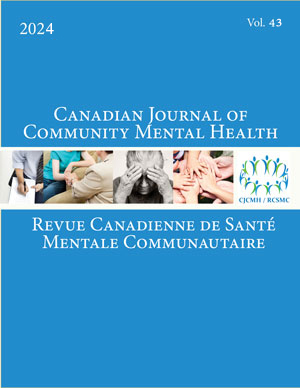Volume 34 • Number 1 • April 2015
Articles
OPEN ACCESS
Photovoice is a photographic technique allowing people to identify, represent, and enhance their community by entrusting cameras to the hands of participants to enable them to capture issues central to their lives. However, few studies have used Photovoice with disadvantaged single mothers, and explicitly studied the impact of using this type of methodology with this population. Hence, the purpose of this study was to assess the impact of Photovoice with disadvantaged single mothers participating in the community-based program Toward Success. Results showed that participants experienced generally positive impacts, such as a sense of accomplishment and increased agency in their lives, and reported no negative impacts.
OPEN ACCESS
Suicidal behaviours are intricately connected to culture, oftentimes reflecting traditional norms and attitudes to health help-seeking and self-management. To describe Korean-Canadian immigrants’ help-seeking and self-management for their suicidal behaviours, 15 participants completed individual semistructured indepth interviews. Using constant comparison analysis, participants’ narratives were analysed to inductively derive two themes: 1) resisting professional help; and, 2) developing effective self-management strategies. The study findings suggest that most participants preferred and opted for self-management strategies rather than seeking professional help. Most participants’ reluctance to seek professional or peer help was underpinned by a fear of the stigma associated with traversing cultural norms by harbouring a mental illness and seeking help for that ailment. In addition, a lack of knowledge about available professional health care services, along with language and cultural barriers, led some participants to perceive mental health services as ineffectual. Participants’ determination to self-manage their suicidality was influenced by cultural norms around honouring and protecting family, and a range of spiritual and religious beliefs also emerged to counter impulses for acting on suicidal thoughts. By shedding light on Korean-Canadian immigrants’ experiences with suicidal behaviours, the findings offer some guidance toward developing culture-sensitive suicide prevention programs.
OPEN ACCESS
This study compared mental health service experiences of lesbian, gay, or bisexual (LGB), transidentified, and cisgender (nontrans) heterosexual people in Ontario. An Internet-based survey, derived from the Canadian community health survey—Mental health and well-being—Cycle 1.2 (Statistics Canada, 2003), was completed by 326 individuals (194 LGB, 71 trans-identified, 61 cisgender heterosexual). Hierarchical logistic regression models were used to examine group differences. All three groups reported high levels of satisfaction and positive experiences with the provider seen most often in the past 12 months. However, substantial proportions of LGB and trans-identified people reported unmet need for mental health services.
OPEN ACCESS
Our health care system is ill prepared for the growing number of older adults and their families/caregivers who live with responsive behaviours associated with cognitive impairment. Considering the burden of illness, quality of life issues, and escalating costs, system-wide redesign is warranted. The Behavioural Supports Ontario (BSO) project is a province-wide, regionally implemented, evidence-informed change strategy that utilizes quality improvement principles and knowledge translation best practices as critical enablers. This paper describes the project and key lessons learned in the implementation of this initiative that can be applied to other jurisdictions wishing to enable large-scale system redesign and sustainable system change.










